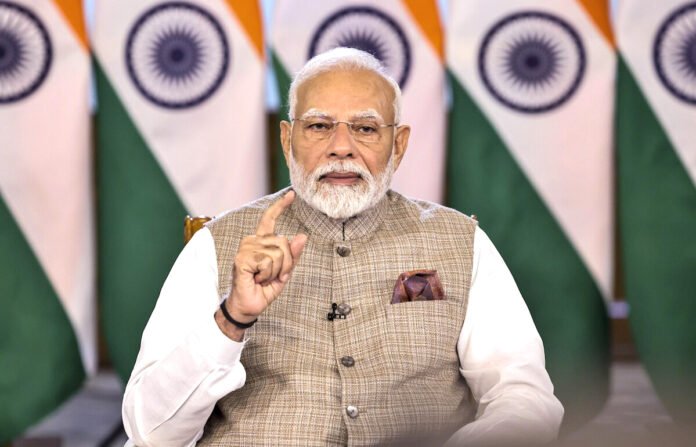Hyderabad: The country is now a reform-oriented one that takes big decisions and has become a trusted partner for investors, said Prime Minister Narendra Modi on November 26 while highlighting India’s investment potential.
Modi said the unit will also help provide job opportunities for youngsters. He virtually inaugurated French major Safran’s Maintenance, Repair and Overhaul (MRO) facility for LEAP engines used in commercial aircraft.
Underlining that the National Single Window System has brought numerous approvals onto a single platform, he said, India has decriminalised hundreds of business-related provisions.
The GST reforms, faceless tax assessment, new labour codes, and the insolvency and bankruptcy code have all made governance simpler and more transparent than ever before, he noted.
Prime Minister Modi said, “Because of these efforts, India is now seen as a trusted partner, a major market, and a rising manufacturing hub. India today has rapid growth, a stable government, a reform-oriented mindset, a vast young talent pool, and a large domestic market. And most importantly, for those investing in India, the country considers them not merely as investors but as co-creators, stakeholders in the journey of Viksit Bharat (Developed India).”
India’s aviation sector has taken a huge leap in last few years and today the country is one of the fastest growing domestic aviation markets in the world, Modi said, adding that India’s domestic market is the third largest in the world.
He said that as the aspirations of the people of India are on a new level, the demand for air travel in the country is increasing, prompting Indian carriers to continuously increase their active fleet. India’s airline companies have ordered more than 1,500 new aircraft.
With the rapid expansion of India’s aviation sector, the need for MRO facilities has also increased, he further said.
Nearly 85 percent of the country’s MRO work has been taking place abroad. This has led to higher costs, longer turnaround times, and aircraft remaining grounded for extended periods, he added.
Pointing out that such a situation was not suitable for a vast aviation market like India, the Government of India is developing the nation as one of the world’s major MRO hubs, he said.
Now, for the first time, a global original equipment manufacturer (OEM) is establishing Deep Level Servicing facility in the country, he said referring to Safran’s facility.
“And we do not just want to be limited to aviation MRO. We are also working on a very large scale on the MRO ecosystem related to shipping. In addition, we are also promoting design in India on a large scale,” the Prime Minister said.
As the country is not just dreaming big, but taking big decisions and achieving even bigger achievements, Modi said that he would like Safran to use India’s talent and opportunities for propulsion design and manufacturing. According to him, the country opened the doors of the economy, secondly strengthened its fundamentals and thirdly made business easier.
He elaborated, “In addition, today 100 per cent FDI is possible in most sectors. In sectors such as defence, where there was no place for the private sector earlier, 74 per cent FDI has been opened automatically. There is also a lot of progress in the space sector.”
The Safran Aircraft Engine Services India (SAESI) facility in Hyderabad will be operational in 2026 and will be a major boost for the country’s indigenous capabilities in the fast-growing aviation sector, a press release from the Prime Minister’s Office (PMO) had said.
Set up with an initial investment of Rs 1,300 crore, the facility is for the LEAP (Leading Edge Aviation Propulsion) engines, which power the narrow-body Airbus A320 Neo and Boeing 737 MAX aircraft.
LEAP engines are manufactured by CFM International, an equal joint venture between Safran Aircraft Engines and GE Aerospace, the release had added.
Designed to service up to 300 LEAP engines annually, SAESI facility will employ over 1,000 highly skilled Indian technicians and engineers upon achieving full operational capacity by 2035, the release said.
Developing indigenous capabilities in MRO will reduce foreign exchange outflows, create high-value employment, strengthen supply-chain resilience and position India as a global aviation hub, as per the release.





